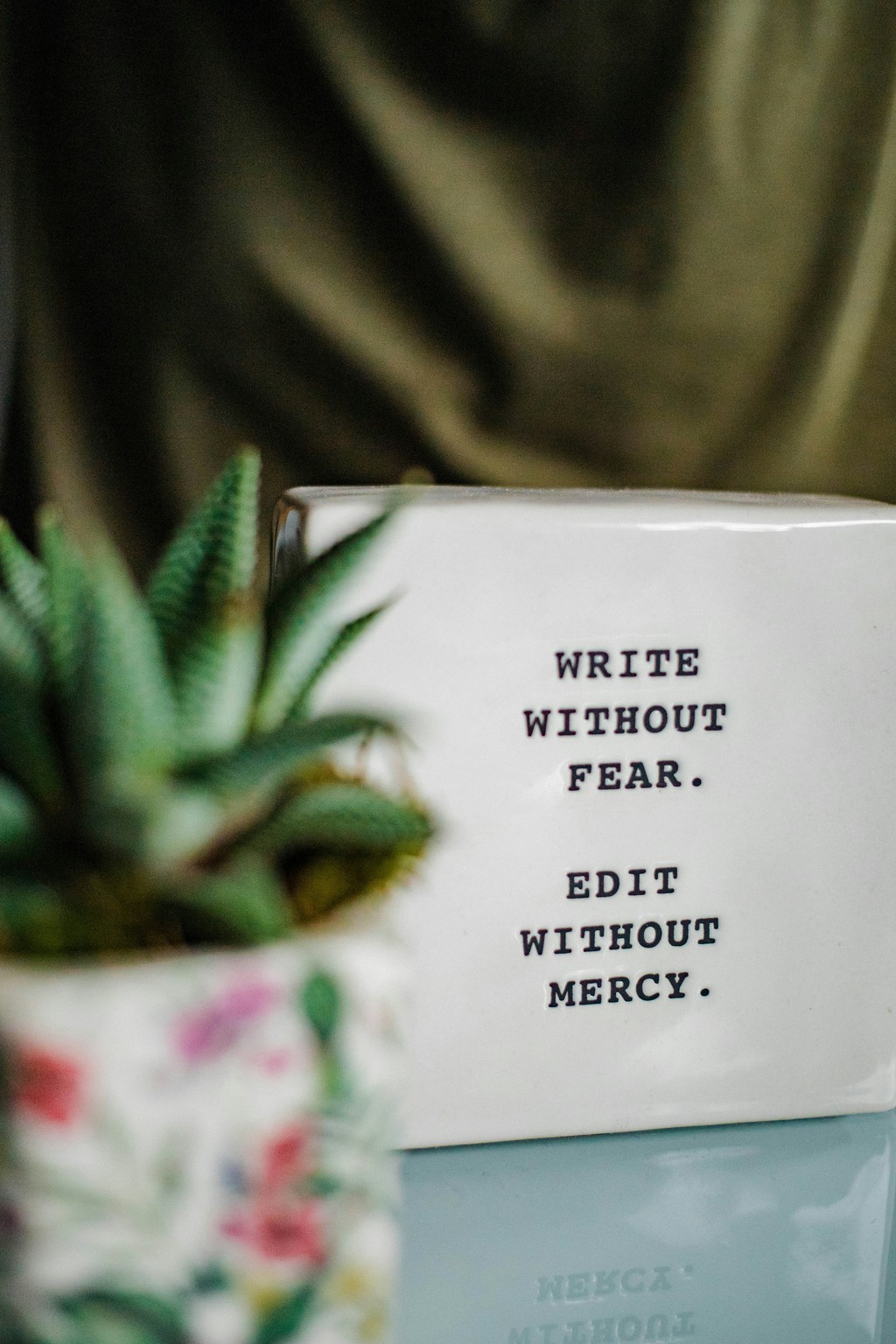Being an Extrovert Writer
Something the universe thought was impossible. And by the universe I mean Reddit.

“Extroverts speak, while introverts write. That’s the only difference!”
— Ramana Pemmaraju
Wow, did they get that one wrong.
I do both. (obviously, or I wouldn’t be typing out these words right now!)
There are a lot of really offensive things said every day, about any person, any group, any physical attribute or personality trait, so going around and pretending like I’m in some special group with some special hurt or injustice done to them isn’t going to be helpful, ultimately. What really needs to be tackled is the behavior of putting someone else down to put yourself or someone else up.
We’re all on equal ground. Everyone is trying to figure themselves and their lives out, and everyone is doing their best with whatever knowledge or tools they have.
I don’t recommend visiting the following website to make yourself angry or prove yourself right, it’s all just more information about how people see introversion/extroversion. This is where I originally found the quote I shared: https://www.therandomvibez.com/extrovert-quotes/
There’s problems to be solved on both sides—there are suggestions of stereotypes for both introverts and extroverts in all of these quotes.
Thing is, looking at it again (and also trying to find the original quote elsewhere), I don’t actually know if the quote I found is even a real quote. How can I even be offended by a fake quote?
Look at this one:
“Introverts love, extroverts think they love.”
— Alan Maiccon
‘scuse me? Think? Are extroverts inhuman? Has an extroverted person never helped you, or smiled at you, or listened to you, or encouraged you, or taught you, or supported you? Can you really say, with full confidence, that every single extroverted individual that you have ever met was shallow and fake, all glitter, no substance? What are you trying to say here? What’s the point of your words?
I would say most of the quotes are argument starters. Not on purpose, per say, but a lot of the speakers are clearly lacking in basic knowledge of personality theory and are either subtly or blatantly lashing out at extroverts and extroversion.
But that’s besides the point. We came here to talk about being an extrovert writer.
How I Became a Writer
So the world thinks that introverts are the readers and writers. However, I was homeschooled, and since that’s apparently supposed to mean I was sheltered from the real world as a child, I came to love writing (and reading), despite being an extrovert. I also picked up a passion for drawing and piano—more hallmark “introvert” activities.
Growing up, I loved to make up stories, but I would tell them to others out loud or act them out in pretend games. Some times I’d even take videos with our camera or dress up. I didn’t know how to write. Knowing me as a kid, you probably would have thought I would have made a good actor, not a writer. Maybe I would have, but that’s certainly not what has happened so far.
Despite being an extrovert, I was a very dreamy kid. The idea of being an actor didn’t really cross my mind much, although I loved to perform—this was likely due to what I was exposed to. Instead of drama classes, I had frequent exposure to all kinds of books growing up, with many trips to the local library (yes, I loved visiting the library then, things are different now) and stories read aloud to us.
My mom started us on creative writing when I was just entering the teenager stage. Now knowing how to write, I could finally free my stories and characters somewhere, and I immediately began forming and writing a story that would turn into the nine-book epic fantasy series I’m working on currently. Writing became a new passion and I pursued it the best way I could think of—by just writing, about anything—anything I could dream of.
I later took some other creative writing classes, along with my regular schooling that taught me about essays and other more technical forms of writing, where there was more structure and less artistic expression. I also kept lots of personal journals during that time.
Then, around the age of 16 or 17, I really got into reading articles. I found that articles were a great way to absorb lots of information over a short period of time. They weren’t often longer than a few thousand words, so I could read them quickly, bookmark them, and refer back to them if I forgot a specific quote or piece of information. And they were usually entertaining! I consumed thousands of them, from magazines and from all over the internet.
The style of writing grabbed me—you could be technical, personal, artistic, or any combination of the three! The rules weren’t set so hard in stone and I found it easy to finish writing one a day, even if I came back to do some editing later.
Soon writing became to me what it is today—one of my major forms of expression. A place to organize my naturally less organized thoughts and share them with the world. A place to free the characters and paint the worlds formed in my mind. Art and music were part of that too.
Along the way, I discovered another passion—personality theory. Thus, you are reading this article. Kudos to you for somehow finding this website among all the AI generated junk.
Are my articles perfect? Nah. But I’m pursuing a cause I believe in, and I’m writing about something I love. What else could I ask for?
Passion for Writing vs. Extrovert Needs
How does this work though? Writing doesn’t involve any of the regularly imagined extroverted activities—namely, socializing. You’re too busy writing (envisioning, outlining, drafting, revising, editing, etc.) to talk to anyone, let alone get out of the house!
As I said before, had you known me when I was younger, you probably wouldn’t have thought I’d become a writer. If I’d had the opportunities placed before me earlier on, I likely would’ve tried acting instead. I loved making stories and characters but I wasn’t necessarily verbally eloquent like my brother, and I didn’t carry around my favorite books all the time or beg to go to author meet-and-greets. I was innately drawn to the arts, drawing especially, but I didn’t see myself as a writer until I was around 13 or 14.
Writing didn’t energize me as an extrovert. It got me into my head and helped me learn more about who I was, but that wasn’t an extroverted experience.
As an ENFP, my writing is a combination of all my top four functions, but in this case, I would say my Fi (my co-pilot Introverted Feeling function) takes the leading role.
There are activities that are more geared towards certain functions or attitudes (e.g. Thinking/Feeling or Extraverting/Introverting), and writing is one of those activities. As humans, we often set up our lifestyles around meeting our needs. For example, if we get the most energy from engaging in Introverted Thinking (Ti), we will be drawn to activities that make use of internal structures of logic, rather than internal values (Fi) or external values (Fe) or even external structures of logic (Te).
This is likely why it is said that there are more introverted writers than extroverted ones. It could also be the fact that people often conflate being extroverted with enjoying socializing (the two things are not dependent on one another). Perhaps it is true though. Perhaps something about the writing process uses more introverted functions than extroverted ones. I don’t know the science behind that or why exactly that might be, but this might be why it would make sense for extroverts to do more podcasts—it’s similar to writing, but you’re talking instead.
For creative writing, I wouldn’t be surprised if, overall, many of the writers were either INFPs, INTPs, INFJs, INTJs, or ISFJs, which are all introverted types. (I’ll warn you upfront that this is not an educated guess, it’s just an observation, based on the books I’ve read and their authors, as well as people I’ve encountered.)
Yet, despite all of this, still I write. Why?
Again—I developed a passion for it. Writing has come to fulfill different desires and needs for me as well—the need to create is one of them. There are causes I pursue through writing as well. Writing is a powerful medium; take the well-known quote that the pen is mightier than the sword.
Anyone Can Cook
If you’ve seen Pixar’s Ratatouille, you’ll recognize the quote. It’s an interesting assertion, and from what I remember, the way they tackle it in the movie is spectacular. The fact is, no matter your background or who you are or even what role society naturally gives you, if you have a passion for something, and you’re willing to make the sacrifices and efforts needed to learn about and achieve that something, you can. Doesn’t mean things will always turn out great, but the important thing is that you aimed for something.
Though you may not be naturally drawn to an activity, if you’re given the opportunity, you can develop a knowledge and a passion for it.
You’ll see all the types trying all of the activities out there. There are actors out there who are ISTPs, ESTJs, ISTJs, ISFJs, and INTPs. There are scientists out there that are ESFJs, ENFPs, ENFJs, and ISFPs. There are psychologists out there that are ENTJs, ESTPs, ESFPs, and ENTPs. Even if a field is dominated by one or more specific types, you will still find all the types present. I’ve been a teller before, and the teller job is listed as one of the worst jobs for an ENFP. I’ve also been a server. That job is dominated by types that are definitely not my type, yet I’ve still done the job. The reality is that there are too many humans in the world and too little knowledge of personality type theory for anyone to (realistically) try to gatekeep anyone out of activities and fields that they would not naturally do well in.
The other reality is that we can grow beyond our type preferences.
Just because you’re a maple tree doesn’t mean you can’t branch out.
Not that it’s a bad thing to take type into consideration though. As Remy points out in a retort to the previously mentioned quote, just because anyone can cook doesn’t mean anyone should.
Don’t limit yourself, but if something’s not working, you don’t have to do it. Even if you think it should fit, don’t force yourself into it. You are more than your personality type—you are a unique human being, with a unique path to tread and mission to fulfill. Find out what that is, and pursue it.
Tags: AllExtroverts, AllPosts











